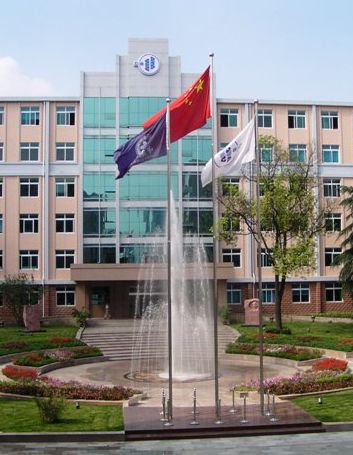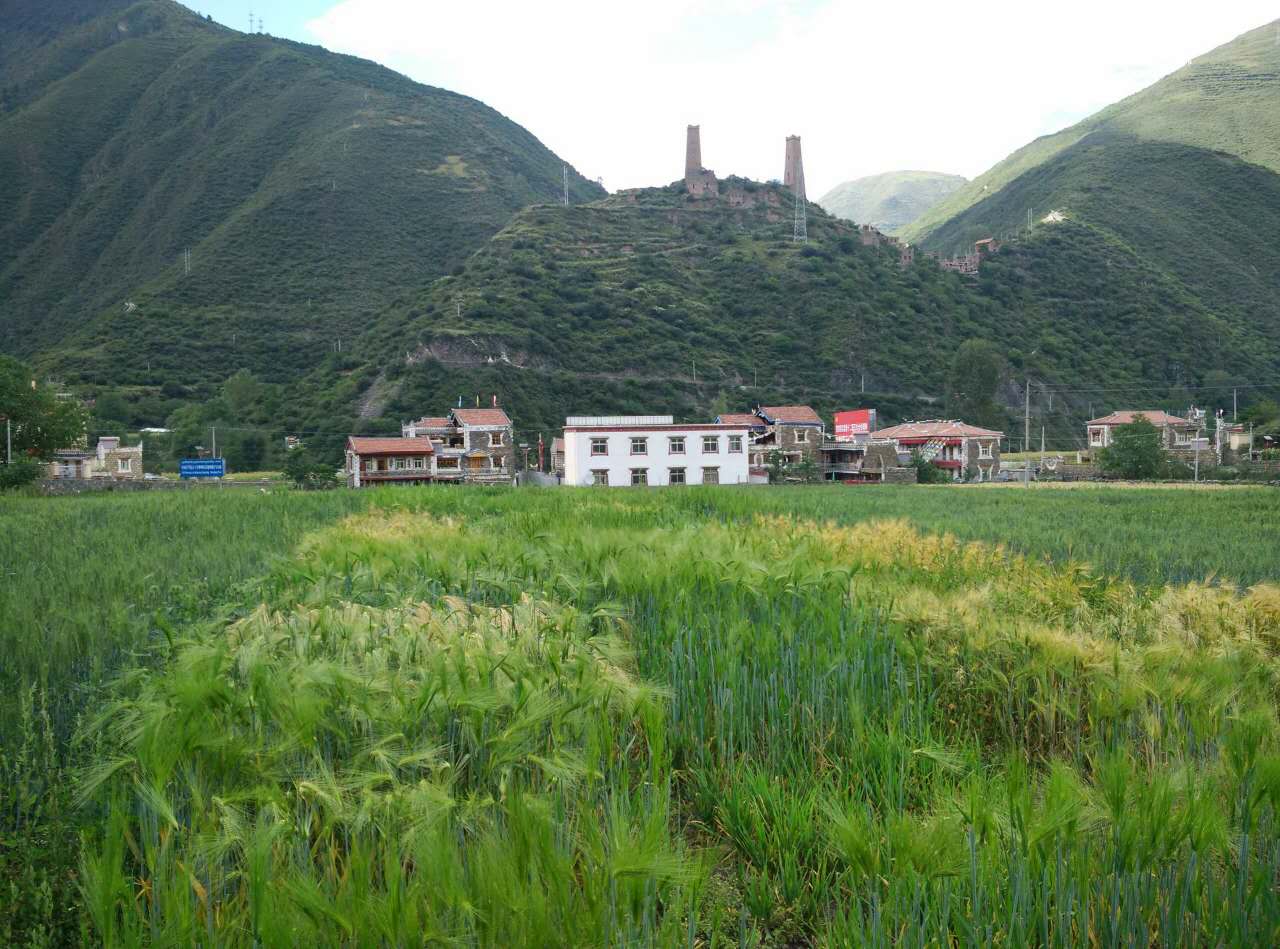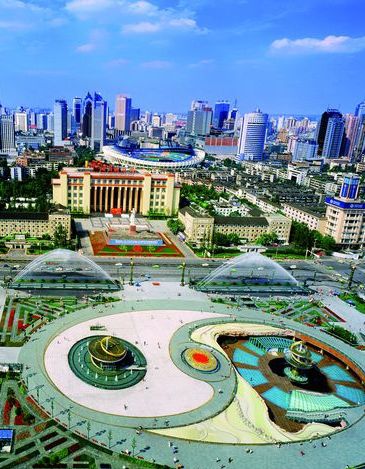
Chengdu, China·August 7-22, 2017
![]()
Admission Brochure



Sponsor: Bureau of International Co-operation, Chinese Academy of Sciences
Organizer: Chengdu Institute of Biology, Chinese Academy of Sciences
Co-organizer: Southeast Asia Biodiversity Research Institute, Chinese Academy of Sciences (CAS-SEABRI)
Chinese Academy of Sciences (CAS)
The Chinese Academy of Sciences (CAS) is the linchpin of China’s drive to explore and harness high technology and the natural sciences for the benefit of China and the world. Comprising a comprehensive research and development network, a merit-based learned society and a system of higher education, CAS brings together scientists and engineers from China and around the world to address both theoretical and applied problems using world-class scientific and management approaches. Since its establishment, CAS has fulfilled multiple roles - as a national team and a locomotive driving national technological innovation, a pioneer in supporting nationwide science and technology (S&T) development, a think tank delivering S&T advice and a community for training young S&T talent.
Chengdu Institute of Biology (CIB)
Chengdu Institute of Biology (CIB), founded in 1958, is a public academic institution directly under the Chinese Academy of Sciences (CAS). As one of the first selected units for Knowledge Innovation Program of CAS, CIB has been dedicated in research in crop breeding, biodiversity conservation and sustainable uses of biological resources. It provides scientific, technological and decision-making support for crop breeding and production in Southwest China, the ecological and environment construction and biodiversity conservation of the upper reaches of Yangtze River as well as for the governmental drive for the development of strategic emerging biological industry.
Southeast Asia Biodiversity Research Institute, Chinese Academy of Sciences (CAS-SEABRI)
Southeast Asia Biodiversity Research Institute, Chinese Academy of Sciences (CAS-SEABRI), is an international scientific research and education institute, affiliated directly to CAS and managed by CAS-XTBG. CAS-SEABRI is devoted to serving China’s “the Silk Road Economic Belt and the 21st Century road” initiative, integrating efforts from CAS and international institutes to organize professional research groups and train researchers in Southeast Asian countries, and providing support to all domestic and international partners.

![]()
A Training Course on Breeding and Production Technology of Staple Crops in Southeast Asia
Crop production plays a crucial role in food security, human life, national economy, and social progress. It is a common problem for Southeast Asian countries as well as China that we have to produce more high-quality grains for feeding increasing population under unfavorable conditions of global climate change, insufficient water, and frequent natural disasters in recent years. Promoting scientific and technological progress of crop breeding and production has become the consensus of all the countries in the world. In the past few decades, the Chinese Academy of Sciences has made dedicated efforts to develop breeding and production technologies of rice and wheat, which are two staple crops in both China and Southeast Asian countries. To share the recent advances and enhance communication between China and Southeast Asian countries, Chengdu Institute of Biology, the Chinese Academy of Sciences (CIB-CAS), together with Southeast Asia Biodiversity Research Institute, Chinese Academy of Sciences (CAS-SEABRI), is providing a training course on crop breeding and production technologies to promote mutual progress of this field in Southeast Asian countries. It is also our cordial expectation to interact and collaborate with researchers from Southeast Asian countries on developing new sciences and technologies for crop breeding and production.
Objectives of the Training
The overall objective of the training is to enhance the capacities of breeding and production of staple crops in Southeast countries. More specifically, the training is designed:
· To familiarize the methods of breeding resource collection, characterization and evaluation.
· To familiarize the techniques of breeding and seed producing.
· To familiarize the technical principle and experimental operation of molecular marker-assisted breeding.
· To familiarize knowledge of crop cultivation and field management.
Date and Venue
· August 7-22, 2017, Chengdu, China (Field work will be conducted in Ma’erkang and Guanghan counties, Xindu and Pidu district of Chengdu).
Training Course Modules
The two week plus course will be organized in six modules:
· Rice resource collection, characterization and evaluation;
· Rice breeding and seed production techniques;
· Rice cultivation techniques and field management;
· Wheat resource collection, characterization and evaluation;
· Wheat breeding, processing and quality control;
· Stress-resistance breeding and molecular marker assisted breeding.
Fees
· The training program will cover the following cost of the participants during the training period:
Round trip air tickets between resident place of participant and Chengdu, China (maxima RMB 7,000)
Accommodation (participants may be requested to share rooms, however, those who insist on single rooms can cover the excess cost themselves)
Food
Local transportation(during tour and visit)
Travel insurance (during field trip)
· The training program will provide the participants a daily allowance of 80 Yuan for 16 days.
· Other cost, such as telephone charges, laundry, consumption of hotel room items and others, shall be covered by the participants themselves.
Who Can Apply?
Researchers or administrative officers, who work in fields of crop germplasm collection & evaluation, breeding, cultivation, production and related genetic & molecular studies, from institutes, universities or enterprises in Southeast Asian countries, including but not limited in Myanmar, Nepal, Vietnam, Thailand, and Bengal.
The applicants shall be fluent in English and be in good health.
Priorities will be given to those who work in above-mentioned fields of rice or wheat.
Participants Selection and Notification
A total of 15 seats are available. Each applicant will be treated equally and evaluated if she/he is eligible.
Shortlisted applicants will be notified by the organizer through emails.
How to apply?
Applicants must fill in the application form and mail it to huangwz@cib.ac.cn before May 31, 2017.
Contact information
Ph.D Hang Weizao, Coordinator
Chengdu Institute of Biology, Chinese Academy of Sciences
No. 9, Section 4, Renmin South Road, Chengdu, China
Postcode: 610041
Tel: 86 28 82890980
Fax: 86 28 82890980
E-mail: huangwz@cib.ac.cn
Tentative Schedule
7/8/2017 Arrival and registration of participants;
8/8/2017 Opening session & Orientation;
9/8/2017 Seed production techniques of hybrid rice;
High yield cultivation and production management of hybrid rice;
10/8/2017 Tour and visit of Rice breeding base;
11/8/2017 Rice resources collection and evaluation;
Mechanism and breeding techniques of rice high yield;
12/8/2017 Visit national hybrid rice engineering and technology center;
13/8/2017 Break time;
14/8/2017 Pathogenicity and resistance mechanism of rice blast;
Prevention and control of rice blast;
15/8/2017 Wheat resources collection and evaluation;
Wheat molecular breeding technology;
High-quality wheat breeding and production development & utilization;
Barley processing and quality evaluation technology;
16/8/2017 Wheat high-yield breeding technology;
Crop molecular marker associated selection (laboratory practice);
17/8/2017 Mechanism of crop tolerance to aluminium and related breeding research;
Pathogenicity of wheat stripe rust and its prevention and control;
18-19/8/2017 Wheat breeding base investigation and practice;
20/8/2017 Break time;
21/8/2017 Closing session;
22/8/2017 Departure of participants.
Attachment:Training on Crop Breeding and Production Technologies in Southeast Asia Application Form